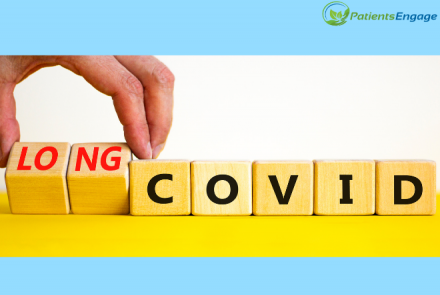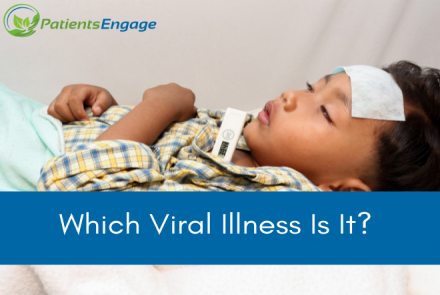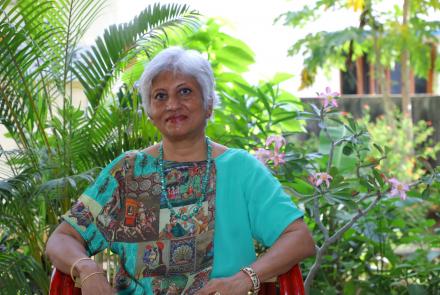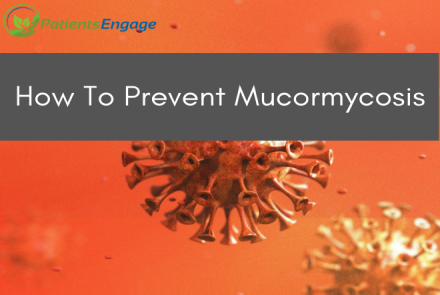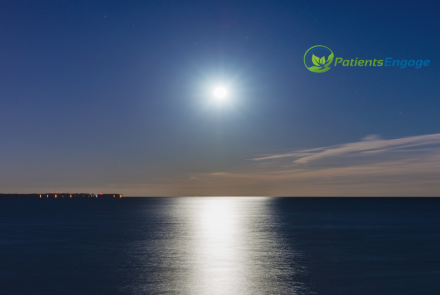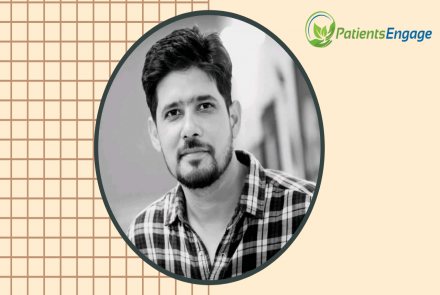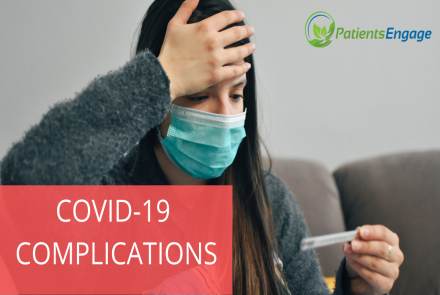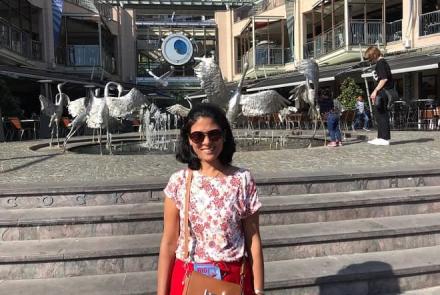
Dr Swati Jha, Director, Community Health & Research at Aga Khan Health Services India, answers some common questions that people are asking about vaccinations, especially those with co-morbidities and pre-existing conditions. Plus a useful image shared by Dr. Deepak Krishnamurthy, Senior Interventional Cardiologist at Sakra World Hospital, Bangalore
As the pandemic does not really seem to be settling down, and there is an upsurge in many parts of the world and the country, the mood is somber. Our children have completed an entire academic year without seeing their teachers or classmates in person, our senior citizen have been home bound and all of us have been facing hardships in some form or the other.
Vaccination drives have started around the world. In India, since January16, the priority group of health personnel and then frontline workers are being vaccinated. From the 1st of March, the next group of high risk individuals, our senior citizen and those younger, but with comorbidities shall be eligible to receive their doses, before the vaccines are made available to the rest of the population.
Let us look at some frequently asked questions regarding the vaccine:
So what is a vaccine?
A vaccine is a product that helps protect your body from harmful infectious diseases. After getting a vaccine, you develop immunity to that disease without getting the disease itself. Vaccines commonly contain the same germs or viruses that cause the disease, but the viruses have either been killed or are weakened to the point that they don’t make you sick while allowing your body to develop immunity.
Is there a vaccine for COVID-19?
There are currently more than 50 COVID-19 vaccine candidates in trials. To date, several vaccines that prevent COVID-19 illness have been provided emergency use authorization by various health authorities around the world. Every country has decided which vaccines to approve for use. For example, in the USA, the Pfizer/BioNTech vaccine and the Moderna vaccine have been granted emergency authorization In India Covishield and Covaxin, have been the first vaccines to be granted authorization for emergency use in India.
What is the schedule for the COVID vaccination in India?
The COVID vaccine was launched on 16th January, 2021. The first two priority groups to receive the vaccines are healthcare and frontline workers. The next priority group to receive COVID-19 vaccine will be persons over 60 years of age and persons under 45 years with co-morbid conditions. (List of conditions has been published)
Listen to our interview with Dr. Swati Jha on Covid-19 vaccination
Is it mandatory to take the vaccine?
Vaccination for COVID-19 is voluntary. However, it is advisable to receive the both doses of COVID-19 vaccine for protecting one-self against this disease and also to limit the spread of this disease to the close contacts including family members, friends, relatives and co-workers. If you are eligible, you should take the vaccine to protect yourself and your family.
How many doses of the vaccine would have to be taken by me and at what interval?
Two doses of vaccine, 28 days apart, need to be taken by an individual to complete the Vaccination schedule. The second dose may be taken up to 12 weeks after the first dose.
When would antibodies develop? After taking first dose, after taking second dose, or much later?
Protective levels of antibodies are generally developed two weeks after receiving the 2nd dose of COVID-19 vaccine.
Is it necessary for a COVID recovered person to take the vaccine?
Yes, it is advisable to receive complete schedule of COVID vaccine irrespective of past history of infection with COVID-19. This will help in developing a strong immune response against the disease. Check with your doctor on when you should schedule the vaccination.
Can a person presently having COVID-19 (confirmed or suspected) infection be vaccinated?
Person with confirmed or suspected COVID-19 infection may increase the risk of spreading the same to others at vaccination site. For this reason, infected individuals should remain physically isolated and defer vaccination for 14 days after symptoms resolution.
What about the possible side-effects from COVID-19 vaccine?
COVID vaccine has been introduced only when the safety is proven. As is true for other vaccines, the common side effects in some individuals are mild fever, pain, etc. at the site of injection. There are proper arrangements to deal with any COVID-19 vaccine-related side-effects at every vaccination center. You will be informed of the symptoms to remain alert about and any follow-up process and resources for help .
Till the 27th of February 2021, 1.35 crores of vaccine doses have been given, less than 18 of every 10,000 people vaccinated have reported side effects. Only 4 people have been hospitalized for every ten lakh people vaccinated and not necessarily due to the vaccine.
How long would the immunity from vaccines last? Would the doses need to be repeated semi-annually/ annually?
Its too early to tell for COVID-19 vaccines. Estimates range from 6 months to 1 year, perhaps even longer. This will become clear as research progresses and more information becomes available in the coming months. Then we’ll be able to know better about if and when to take the booster dose.
Special patient groups
Is the safety data adequate on these vaccines especially for people with underlying health conditions/immune compromised state?
Both the vaccine manufacturers have published groups of individuals who should not be given the vaccines. The given direction should be followed for people in high risk groups. The risks induced by COVID is much higher in individuals than the risks induced by the vaccine.
If one is taking medicines for illnesses like Cancer, Diabetes, Hypertension etc., can s/he take the COVID-19 vaccine?
The vaccination is recommended in patients with history of chronic diseases and morbidities (cardiac, neurological, pulmonary, metabolic, renal, malignancies).
Persons with one or more of these comorbid conditions are considered high risk category for COVID infections. They need to get COVID-19 vaccination for protection against the same. The complications in these patients do not affect the vaccine effectivity. Antidiabetic drugs do not affect the vaccines’ actions
Can persons who have immune-deficiency or are on immune-suppressants for some reason benefit from the vaccine? Is it advisable for them?
For persons with immuno-deficiency, HIV, or patients on immune-suppression due to any condition, tthe response to the COVID-19 vaccine may be less effective. However, in general, it is still advised that they take the vaccine after due consultation with their doctor, as they are at greater risk for infection s and the protection would be useful.
The vaccine is not contraindicated in any condition except if you have a serious active illness like currently undergoing cancer treatment. If you have an active illness, it is advisable to let that illness resolve and then take the vaccine. In case of any doubts, do consult your doctor.
Antidiabetic drugs do not affect the vaccines’ actions.
Would the vaccine be recommended for:
a. 16 year old with Diabetes
The vaccine’s safety and efficacy has not been tested in children younger than 16 (Covaxin) and 18(Covishield) so till further research is available, it would not be prudent to use it in this age group. In India the vaccines at present are available for general population in only those who are 45 years and more.
b. a pregnant or lactating woman
The efficacy and safety results are not yet available for pregnant and lactating women with or without Diabetes. So it is not yet recommended to use the vaccines in this population till more information is available.
c. Cancer patient?
For cancer patients on active treatment, it is recommended to complete the present treatment cycle and then take the vaccine. The oncologist should preferably be consulted.
Can someone with seizures take the vaccine?
Vaccines are not contraindicated in those with history of seizures. Both the vaccines available in India have not shown any seizure like side effects in any studies/ vaccinations so far.
So, what are the contraindications for taking the vaccine?
Contraindication to taking the vaccines:
- Had a severe allergic reaction after a previous dose of this vaccine
- If you have a bleeding disorder or are on a blood thinner (Please see image below )
- If you are immunocompromised or are on a medicine that affects your immune system
- If you have received another COVID-19 vaccine
- If you have ever had a severe allergic reaction (anaphylaxis) after any drug, food, any vaccine or any ingredients of COVISHIELD™ vaccine/ Covaxin
- If you are breastfeeding
- If you are pregnant or plan to become pregnant
Using a useful flow chart Dr. Deepak Krishnamurthy, Senior Interventional Cardiologist at Sakra World Hospital, Bangalore explained that only when INR (International Normalised Ratio - standardised measurement of the time it takes for blood to clot) is less than 3.0, the person can be vaccinated. Your doctor may adjust your medicines so that INR is brought down to below 3.0. Originally shared via twitter,
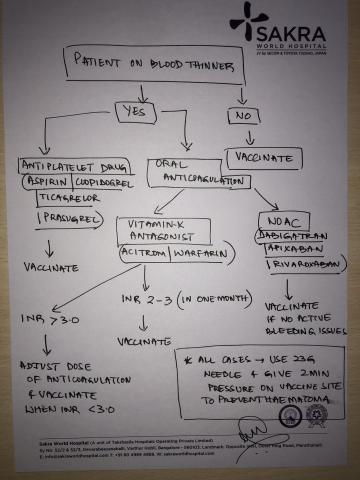
Follow up Questions Received
Should I feel confident about taking/ recommending the vaccines approved in India- Covishield by Oxford/AZ & Covaxin by Bharat Biotech especially since there are no Phase 3 trials for Covaxin
The results from phase I and Phase II trials which determine safety and presence of immunogenicity is out. The vaccine is safe and is inducing reasonable immunity. In the absence of an alternative vaccine, it is advisable to take this vaccine too. Personal discretion should be exercised.
Do these vaccines offer protection against the new strains- UK strain which is more infectious & South African strain?
Both Covaxin and Covishield have been found to be protective against the UK strain in different studies which have not yet been peer reviewed. Data for SA strain is still not available.
What gap is required between the flu and pneumonia vaccines and the COVID one?
According to updated CDC guidelines, there is no need for any gap between mRNA vaccine and flu and pneumonia vaccine. They can be administered at the same time.
Do they take a medical history before vaccinating, and do they observe after it for some time in the hospital?
Depending on what kind of center you are visiting, the staff on duty shall take a medical history, but remember unless you have an acute illness or an allergy to vaccine ingredients (history of reaction to previous vaccines), the vaccine is not a contraindication. For those people with complicated illnesses, it is best to consult your treating doctor first before going for vaccinations
If a senior couple lives without family/ help, should they stagger their vaccines, so that one of the couple is able to handle the side-effects the other may have?
The vaccines are safe and have only mild side effects. But it makes sense in a small household of only two senior citizens to vaccinate only one person at a time. This has to be weighed against the discomfort of having to make two different visits for two people.
Should the first vaccine be in the dominant hand's arm so that the second one, which is worse, is in the non-dominant arm?
No the vaccine is given in the non-dominant hand that just in case, if there is a local problem, it spares the dominant hand. The local problems of pain and discomfort are cured in 48 hours the second dose after 4 + weeks is not worse than the first dose. By then the same hand is more than just fit for the second dose.
If you are a breast cancer survivor – do not vaccinate on the arm from which lymph nodes have been removed.
Regarding the second dose, is there a window within which it may be taken or a strict 4 weeks?
The second dose of the vaccine may be taken anytime between 4 to 12 weeks. It makes sense to get your second dose in time to ensure you are reasonably safe in these pandemic times.
Vaccines are the most cost effective measure to protect us against diseases, pandemics. Taking a vaccine does not only protect us, but also enables the people around us to be safer than they were earlier. The priority groups created are only because there is a mismatch of demand and supply. The sooner a large percentage of population takes the vaccine, the earlier we can expect the pandemic to stop wreaking havoc in our lives and economy. Everyone who is eligible for the doses and has access should take the vaccine not only as a personal protective measure, but also as a civic duty. To repeat more than 1 crore of Indian population has been vaccinated so far and both the vaccines, Covishield and Covaxin, have been found to be very safe.
Vaccine and COVID appropriate behavior
Do I stop wearing a mask and taking precautions post vaccination?
No. The advice is to carry out COVID-appropriate precautions even after vaccinations. Till a large number of population has been vaccinated, we will need to continue with the precautions.
Registration related information
Can a person get the COVID-19 vaccine without registration with Health Department?
No, registration of beneficiary is mandatory for vaccination for COVID-19. Only after registration the information on the session site to visit and time will be shared with the beneficiary. Various platforms could be opened for the purpose of self-registration such as the Aarogya Setu app, a group of helplines, through IVRS for those with a feature phone, and people will even have the option of using a web portal to pick a slot. For areas where internet connectivity is an issue, there would be options of seeking an appointment for vaccination through walk-ins at your nearest health or other identified facilities. All these modalities are currently being worked out.
What documents are required for registration of eligible beneficiary?
Any of the below mentioned ID with Photo may be produced at the time of registration:
- Aadhar card
- Driving License
- Health Insurance Smart Card issued under the scheme of Ministry of Labor
- Mahatma Gandhi National Rural Employment Guarantee Act (MGNREGA) Job Card
- Official identity cards issued to MPs/MLAs/MLCs
- PAN Card
- Passbooks issued by Bank/Post Office
- Passport
- Pension Document
- Service Identity Card issued to employees by Central/ State Govt./ Public Limited Companies
- Voter ID
Will a Photo ID be required at the time of registration?
The Photo ID produced at the time of registration must be produced and verified at the time of vaccination.
How will the beneficiary receive information about due date of vaccination?
Following online registration, beneficiary will receive SMS on their registered mobile number on the due date, place and time of vaccination. They may also receive a phone call.
Will vaccinated beneficiaries receive information on the status of their vaccination after completion?
Yes. On getting due dose of COVID-19 vaccine, the beneficiary will receive SMS on their registered mobile number. After all doses of vaccine are administered, a QR code based certificate will also be sent to the registered mobile number of the beneficiary. You can download your certificate, either at the center, or on the Aarogya Setu app or Digi locker app.
Have more questions about vaccines in general? Check out our interview with Prof. Srinath Reddy, President Public Health Foundation of India

